The Tiki God is a popular symbol in Polynesian culture, often associated with good luck, prosperity, and protection. But where did this iconic figure come from? In this article, we will explore the fascinating legend of the Tiki God and its significance in Polynesian culture.
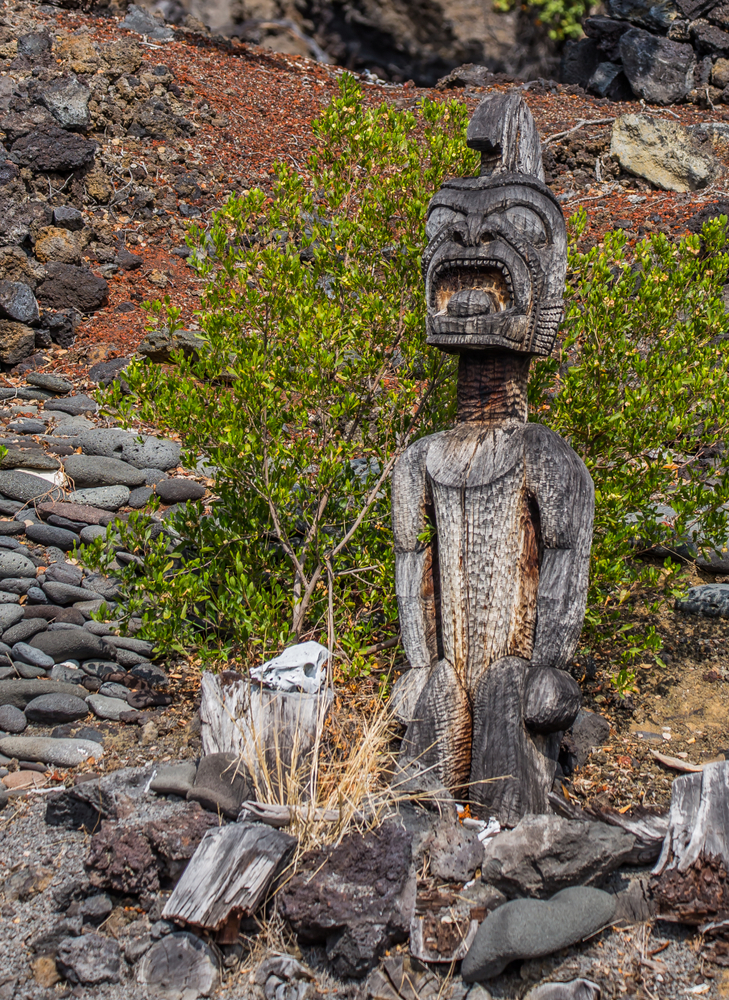
The Tiki figure is a legendary figure deeply rooted in the enchanting world of Polynesian culture. This captivating deity, revered for centuries, holds a significant place in the hearts and minds of Polynesians.
In this article, we'll learn about the Tiki idol's story and its significance in Polynesian beliefs.
Prepare for a trip through time and dive into the fascinating stories about this famous symbol of gods and legends. Join us as we uncover the mysteries and unravel the fascinating legend of the Tiki deity.
The Origins of the Tiki God
The Tiki God comes from the Polynesian god Kane, who created the world and is the god of light and life. According to legend, Kane created the first man and woman out of clay and breathed life into them, making them his children. The "tiki" were the first humans and people believed they had a special connection to the gods.
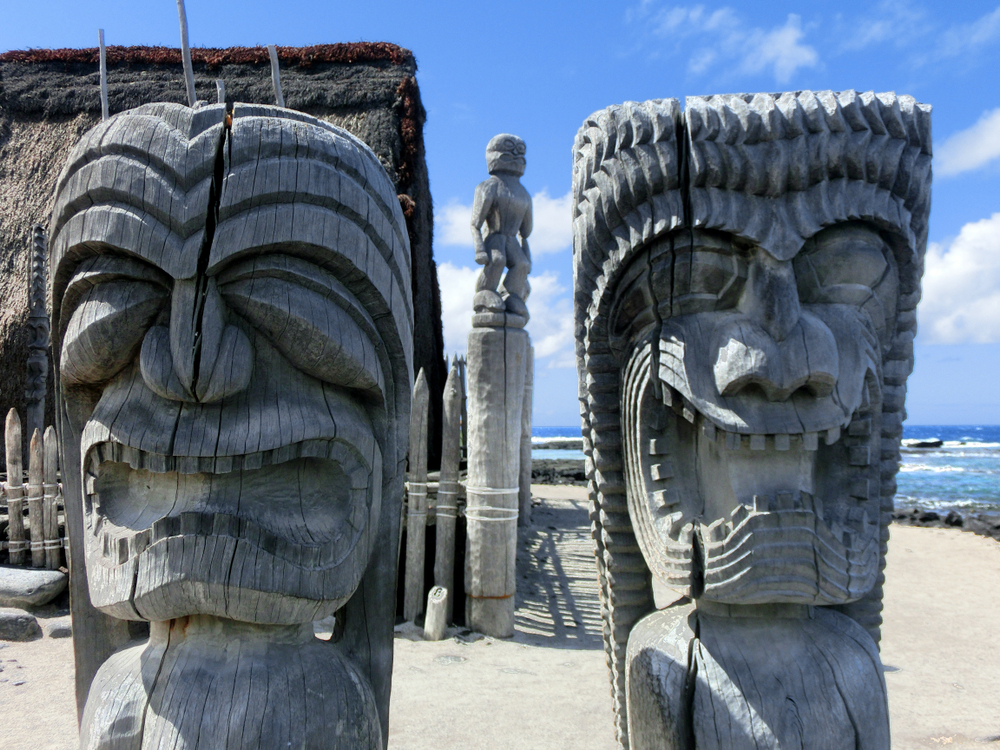
The Tiki God's Role in Polynesian Culture
Polynesian culture holds the Tiki God in a significant place, deeply revering and respecting it. Worshippers see this god as a strong guardian and giver, believing that it brings luck, riches, and fertility. The Tiki God is a powerful force that affects many parts of life and is important in Polynesian homes.
The worship of the Tiki figure is deeply ingrained in Polynesian traditions and rituals. People can seek blessings and favor from the Tiki God by praying, performing ceremonies, and making offerings. People see this act of devotion as a way to establish a connection with the divine and to seek guidance and protection.
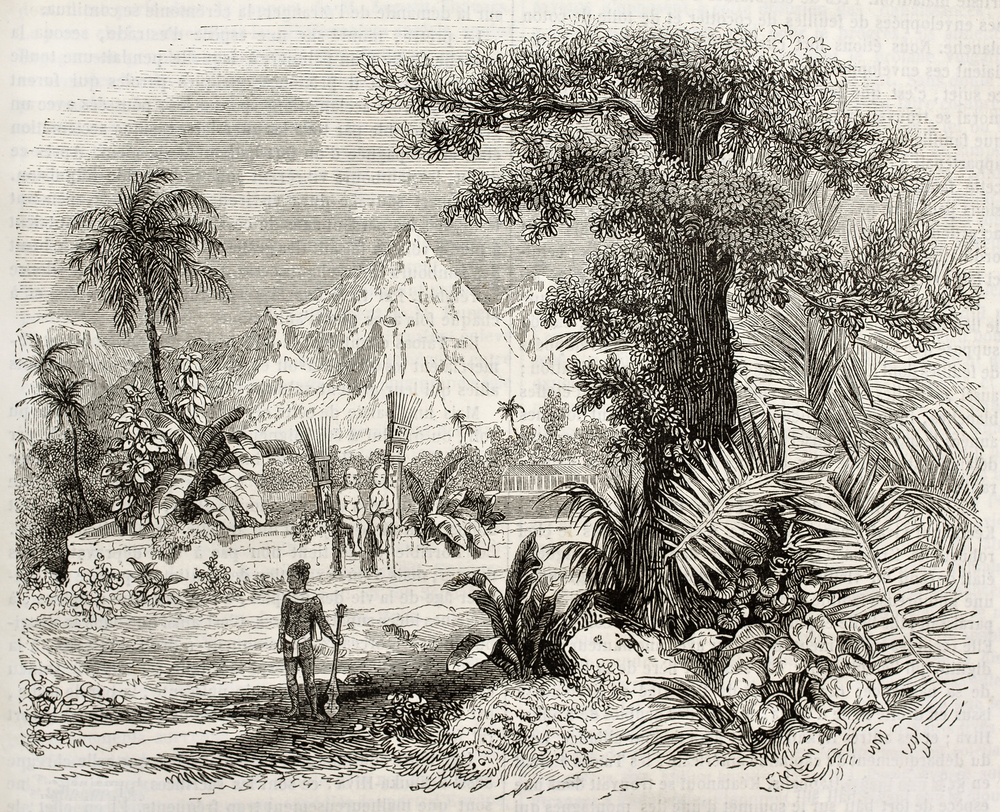
Polynesian households commonly have statues that often depict the Tiki God. These statues physically represent the deity and people believe they embody its spiritual essence. Polynesian people make statues from wood or stone, showing their artistic skills and craftsmanship.
Tiki deity statues across the Hawaiian islands and south Pacific symbolize devotion and bring comfort and reassurance. Polynesians think statues at home keep away bad spirits, safeguard family, and bring wealth and plenty. People place statues in important spots, such as entrances or family altars, to ensure visibility and significance.
Tikis are important in the culture of Pacific islands like Hawaii and French Polynesia. They have different carvings and designs.
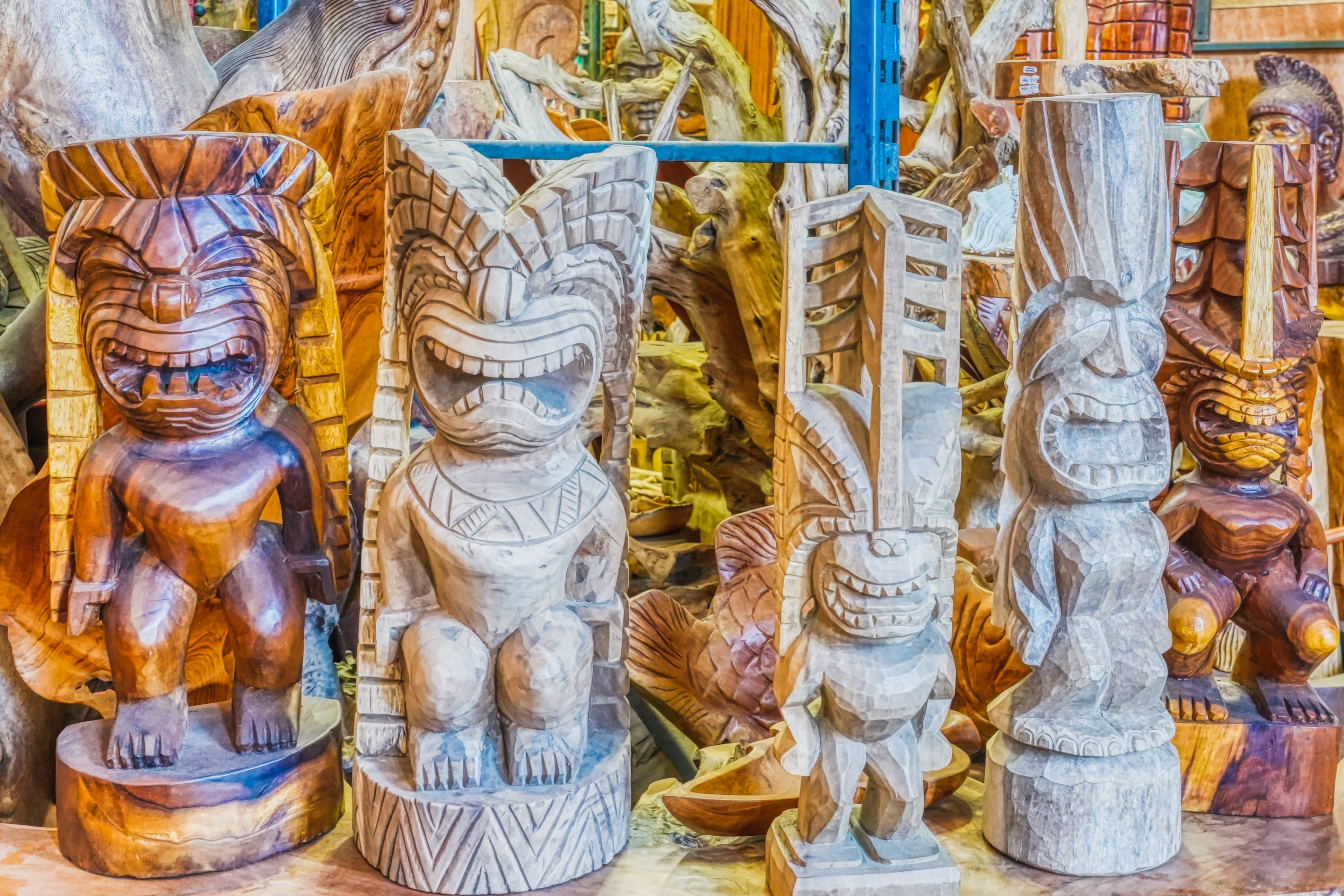
The Tiki God does not limit itself to a single representation or form. It can take on various shapes and sizes, each with its own unique symbolism and meaning.
Some Tiki Gods depict fierce expressions and bold features, representing strength and power. Others may have more serene and peaceful expressions, symbolizing harmony and tranquility. Many people depict the Tiki God in various ways. This is because it greatly influences different aspects of life.
The Tiki God is important in Polynesian culture, bringing blessings, protection, and abundance to the people. Polynesian households have statues that show their strong beliefs and traditions passed down for generations.
Polynesians still worship the Tiki God, which is important to their culture. They believe it brings them luck and prosperity, so they put it in a special place.
The Tiki God and Money
The Tiki idol captivates people because of its link to wealth and abundance, which makes it interesting. Deeply rooted in the Polynesian culture, the Tiki money God exemplifies an emblematic symbol of abundance and prosperity.
By worshiping the Tiki idol, people can gain immense wealth and achieve great financial success. Numerous individuals firmly trust in utilizing Tiki idol wealth amulets and sculptures to draw in prosperity and good fortune. Businesses and homes commonly use these to bring in wealth and success.
The Legend of the Tiki God's Powers
According to legend, the Tiki God Kane has the power to grant wishes and bring good luck to those who worship it. People say that if someone offers gifts and prayers to the Tiki God, the Tiki God will grant their wishes. This belief has led to the tradition of leaving offerings such as food, flowers, and money at Tiki God statues in temples and shrines.

The Tiki Deity in Modern Culture
The Tiki figure is a popular symbol in modern culture, linked to vacations, tiki bars, and Hawaiian parties. However, it is important to remember the cultural significance and sacredness of the Tiki God in Polynesian culture. While people may use it as a decorative item, they should respect its origins and meaning.
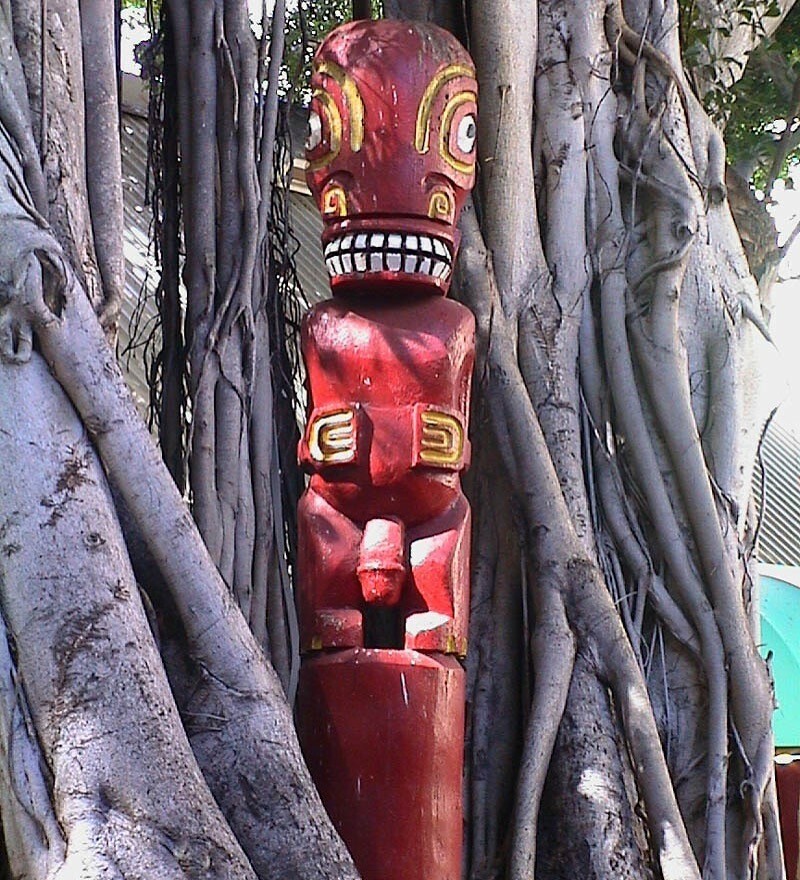
These tiki statues are mostly hand carved by hand with the help of chainsaws at the beginning. Tiki figures showcase more details on the Marquesas islands as well as the cook islands.
The Tiki God's Legacy
Generations still celebrate the important Tiki idol legend in Polynesian culture today. The Tiki God is important in Polynesian culture. It connects humans to gods and brings good luck and prosperity. People love and respect it.
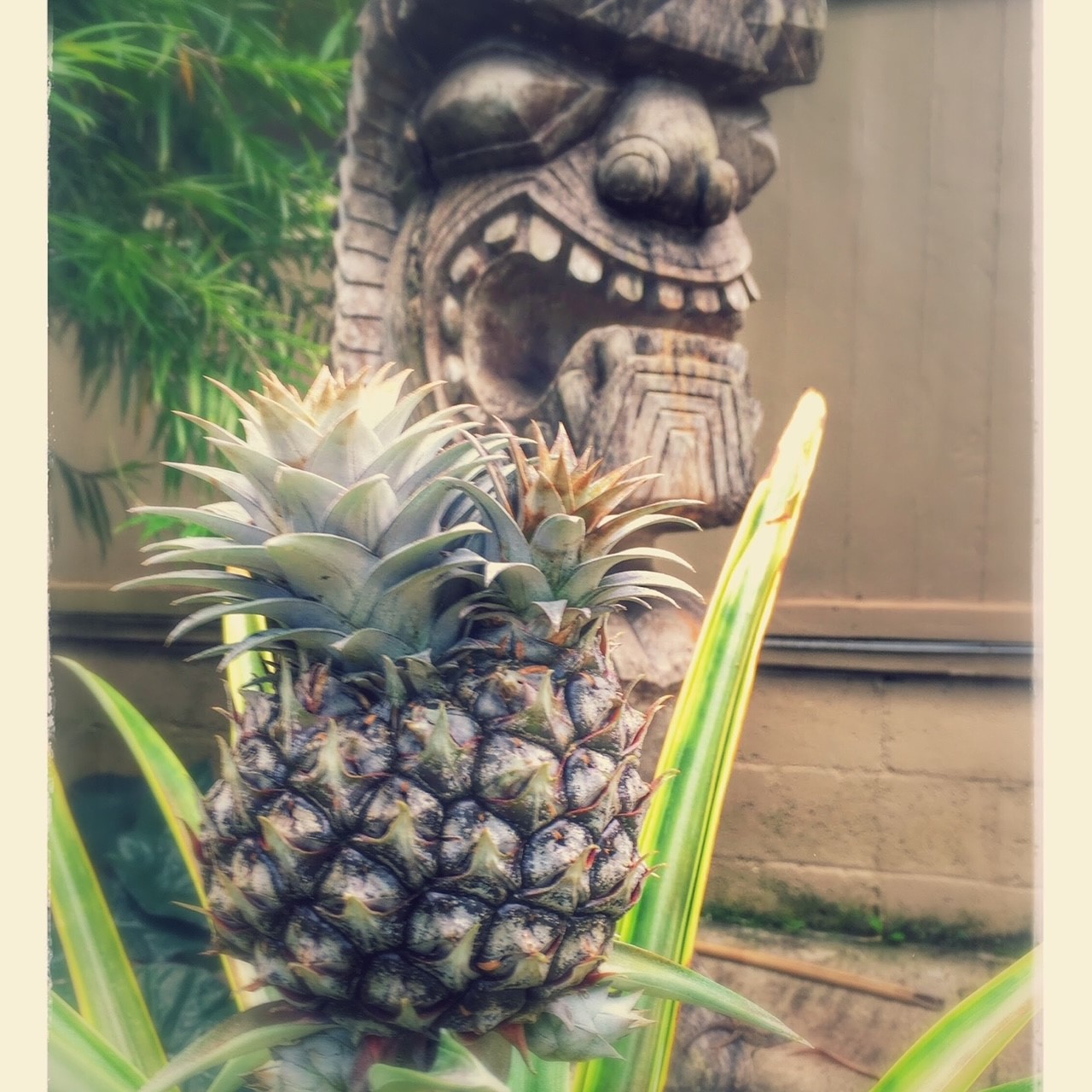
In conclusion, the Tiki figure is a fascinating legend that holds great significance in Polynesian culture. The symbol links with wealth, fortune, and safeguarding, but we must honor its roots and cultural significance. Have you ever encountered a Tiki God statue? Share your experience in the comments below.




